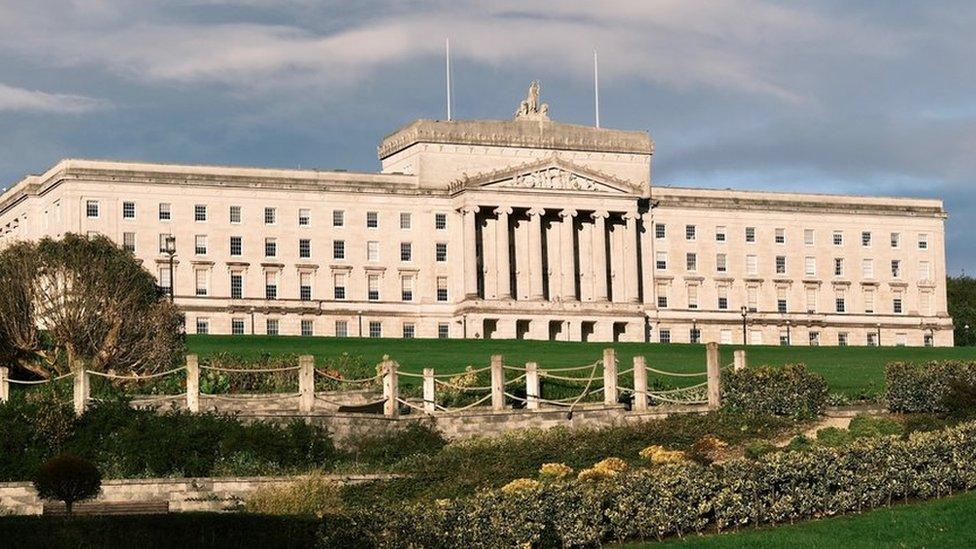Stormont stalemate: Parties press for more generous funding deal
- Published
- comments
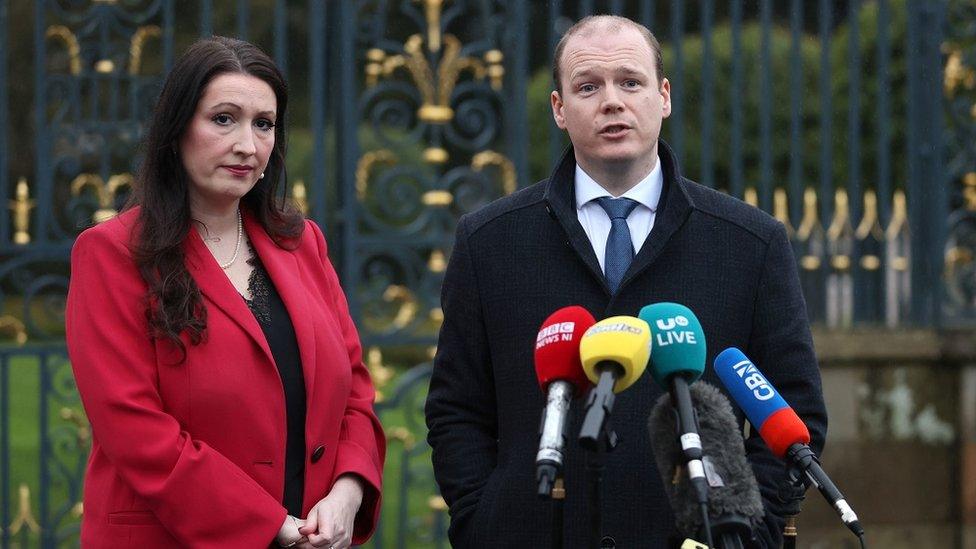
The DUP's Emma Little-Pengelly and Gordon Lyons talk to the press on Tuesday
Northern Ireland parties are pressing the UK government for a more generous long-term funding settlement in talks aimed at restoring devolution.
Discussions have been taking place about a proposed financial package worth £2.5bn to support the return of a Stormont executive.
The UK government made an offer including long-term funding, dependent on power-sharing returning.
Party leaders have said it is not enough money.
Stormont has been without an executive for 22 months since the Democratic Unionist Party (DUP) - which is now Northern Ireland's second largest party - pulled out of the power-sharing government.
Politicians from the five largest parties met Northern Ireland Office officials for technical talks on Tuesday.
'Some way to go'
The DUP's Mr Lyons said he did not believe the package on offer was "adequate to address the issues that we face".
"We're not asking for any more than what other devolved administrations are getting", he told reporters on Tuesday.
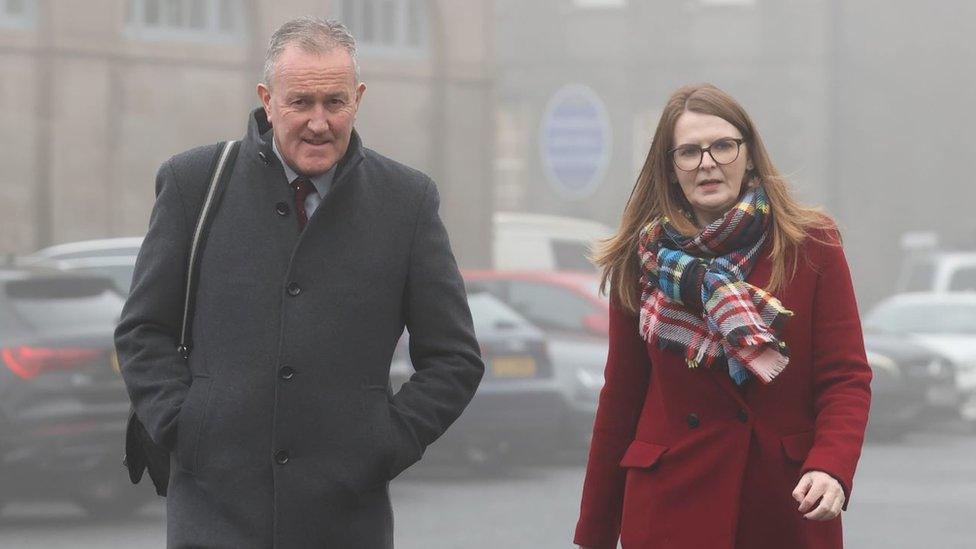
Sinn Féin's Conor Murphy and Caoimhe Archibald arrive for the talks at Hillsborough Castle
"We're asking to be funded according to need, so that we can have public services comparable with the rest of the United Kingdom."
Mr Lyons said his party was "not going to put any timelines" on talks to revive the power-sharing institutions.
Sinn Féin's Mr Murphy said the talks were not "a real negotiation" and the package offered "falls short of what's needed".
Calling on the DUP to end its Stormont boycott, Mr Murphy said the best way to discuss a support package for public services was through "a working executive engaging with the British government".

What is in the government's offer?
It would include a lump sum to settle public sector pay claims and a new "needs-based" funding formula for public services.
It would also allow budget overspends at Stormont from last year and this year to be repaid over five years.
An executive would have to commit to raising rates - the property taxes paid by households and businesses - by at least 15%.
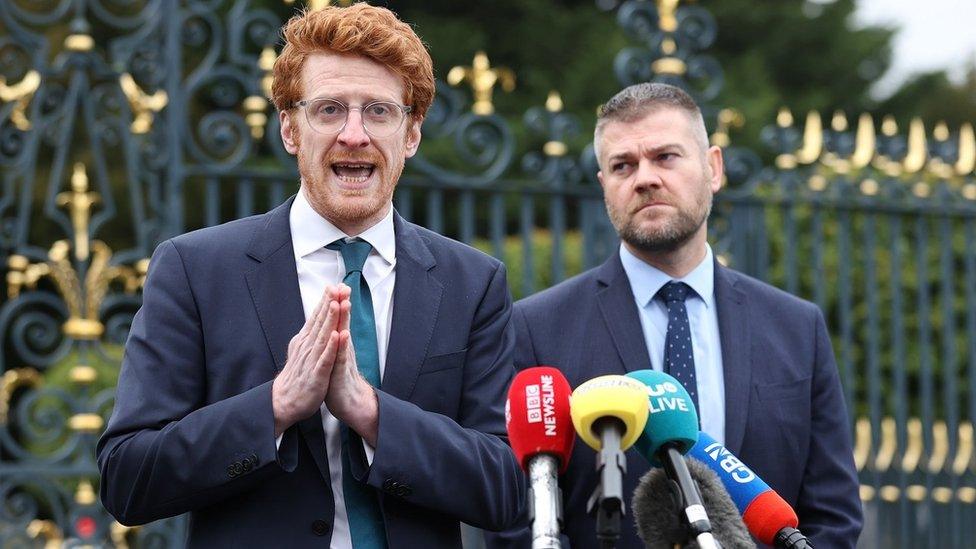
The SDLP's Matthew O'Toole and Colin McGrath took part in the talks
Stormont's Department of Finance has previously said it is facing £580m of public sector pay pressures this year, but it is not certain if the government would fully fund that.
The package would also include a four-year "stabilisation fund" worth £1.125bn.

Union protests over pay
The party talks come as the trade union, Unison, announced its public sector members will strike on 18 January in a protest over pay.
Trade unions have welcomed some aspects of the government's proposed package while describing others as irresponsible.
Gerry Murphy, of the Irish Congress of Trades Unions, said they welcome the acceptance that public sector pay has been cut and needs to be restored.
However, he added that the overall offer "falls well short" and is "simply repeating the mistakes of the past".
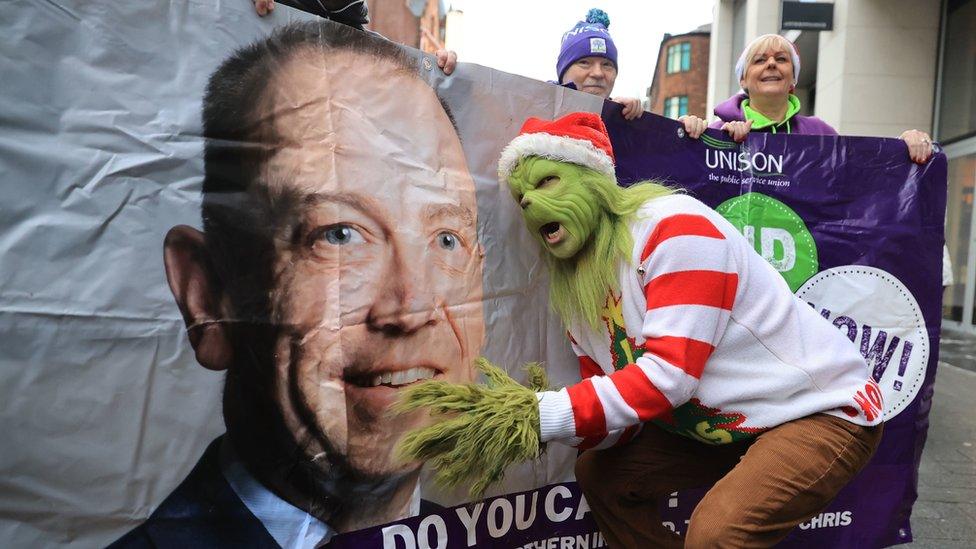
Unison held a protest outside Northern Ireland Office headquarters in Belfast
He said: "Public sector pay is a recurring expenditure. Offering one year funding to meet public sector pay requirements is not only short-sighted, it is financially irresponsible."
Meanwhile, the body representing major retailers in Northern Ireland says a proposed 15% increase in rates would be "ludicrous".
The government has proposed that rates should rise as a condition of a funding package to restore devolution.
Neil Johnston, of the Northern Ireland Retail Consortium, said: "Business in Northern Ireland will resist both this ludicrously large increase in costs and any attempt to use the business sector as part of a political negotiation."
On Monday, members of public service union Unison staged a protest outside Hillsborough Castle as all-party talks were under way.
Stephanie Greenwood, a Unison representative, said she had cautious optimism about the £2.5bn offer but the "devil's in the detail".
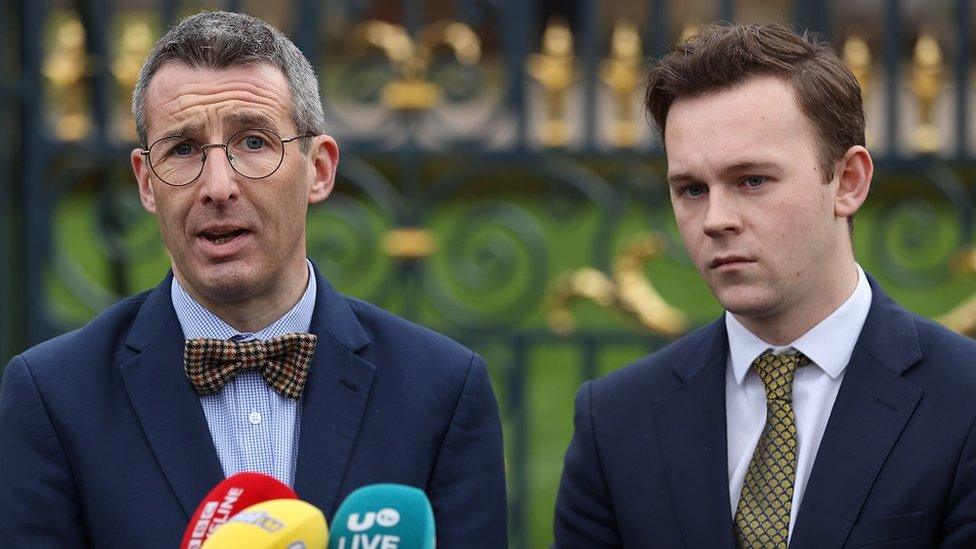
Andrew Muir of the Alliance Party (left) with party colleague Eoin Tennyson
The Department of Health said it fully understood the "scale of the frustration" among staff about pay, adding that a January strike "will inevitably impact on patient care".
Ulster Unionist Party assembly member Steve Aiken, said that talks had been "fairly intense".
He said parties were all in agreement about issues around setting a "fiscal floor" for Northern Ireland's finances.
'We can't continue like this'
The Alliance Party's Andrew Muir said the government's proposed financial package contained the "key principles" of what his party has been arguing for, but the "quantum" of the offer is the main issue.
Mr Muir said he was "not entirely optimistic" that Stormont will be restored by Christmas.
Matthew O'Toole, of the Social Democratic and Labour Party (SDLP), said a deal could be done but it would be "inexcusable for this to drag on beyond Christmas".
How did we get here?
The DUP collapsed the Stormont Assembly in February 2022 in protest against the Northern Ireland Protocol, which was agreed in 2019 by the UK and EU and placed a trade border in the Irish Sea.
Unionists said it diminished Northern Ireland's place within the UK internal market.
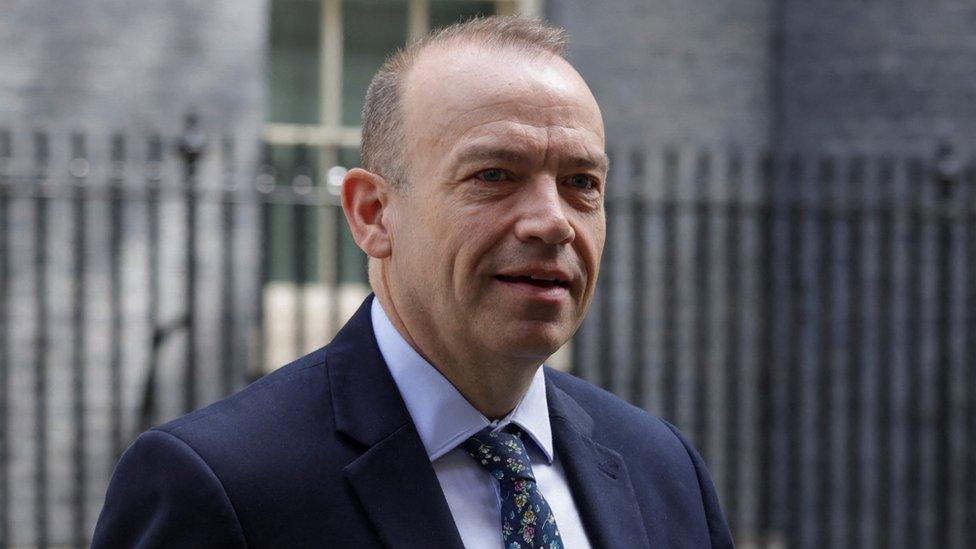
Northern Ireland Secretary Chris Heaton-Harris said talks with the DUP are in the "final, final stages"
In February, the UK agreed a new deal with the EU called the Windsor Framework which reduced the level of checks on goods going from Great Britain to Northern Ireland.
But the DUP said this did not go far enough and it has been in closed negotiations with the government for months aimed at securing further changes to the arrangements.
Last month, Mr Heaton-Harris said those talks were in the "final, final stages".
There is a general view that talks must conclude by Christmas or the turn of the new year, ahead of parties switching their focus to the Westminster general election which is likely to take place in 2024.
Related topics
- Published11 December 2023
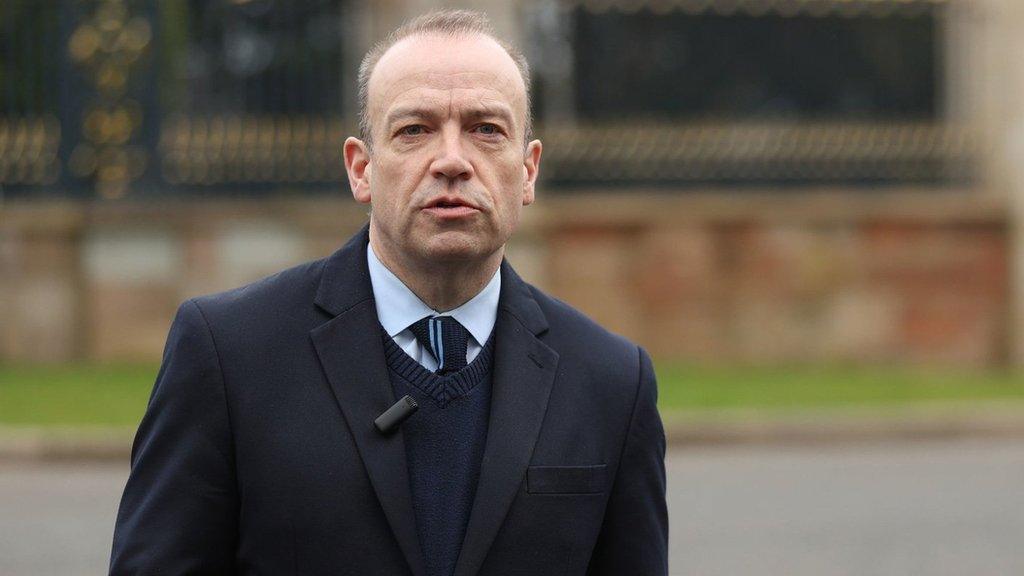
- Published11 December 2023
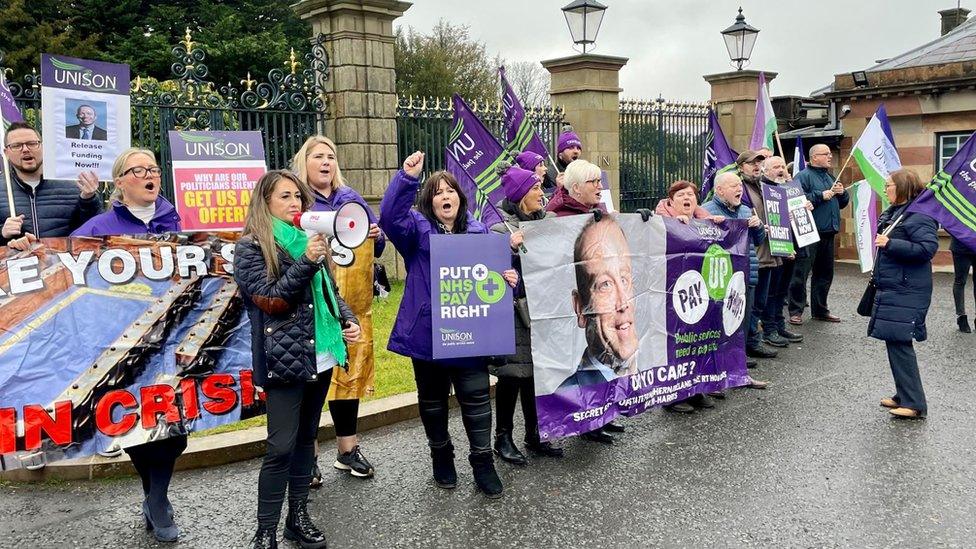
- Published12 December 2023

- Published9 November 2023
